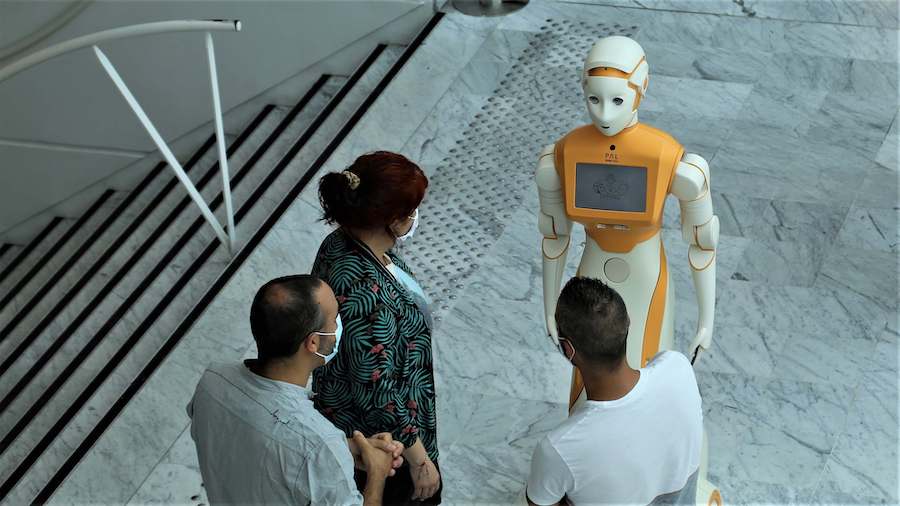Healthcare / Innovation
Socially assistive robots ease pressure on hospital staff in European trial
By Andrew Sansom | 05 Feb 2024 | 0
Next-generation socially assistive robots have been successfully tested in a healthcare setting to assist patients, alleviate their anxiety, and relieve pressure on nursing staff as part of a hospital trial co-conducted by researchers from the UK’s National Robotarium in Paris, France.
The SPRING (Socially Assistive Robots in Gerontological healthcare) trial developed robots equipped with advanced artificial intelligence to enable natural conversations, understand patient needs, and assist hospital staff with routine tasks, across three waves of experiments with elderly volunteers at Assistance Publique Hôpitaux de Paris.
The robots were able to engage smoothly in social interactions such as greeting patients, answering questions, and providing directions. Critically, robots are also quickly demonstrating an ability to comprehend multi-party conversations – following dialogue between several individuals simultaneously.
By undertaking simple but repetitive duties, robots reduced potential physical contact between clinicians and patients as part of the trial, with early feedback suggesting the use of the robots may lower infection transmission risk while boosting productivity of nurses and doctors.
“The prospect of robots seamlessly collaborating with hospital staff to enhance the patient experience is now closer to reality,” said Professor Oliver Lemon, academic co-lead of Heriot-Watt’s National Robotarium.
Anxiety and uncertainty can often precede a hospital visit, with up to 20 per cent of older adults affected. The availability of helpful and socially intelligent robots that can converse and answer initial screening questions while alleviating pressure on busy hospital staff could therefore prove extremely beneficial in clinical settings. 
Professor Anne-Sophie Rigaud, head of department at Assistance Publique Hôpitaux de Paris, said: “Our patients are increasingly interested in robotics and the evolution of hospital services, which they see as the logical evolution of our society. We believe that the ARI robot could in future become an essential element of patient care in hospitals, thanks to its capacity for social interaction and guidance.
“Older adults have also expressed that they’re pleased with the design of the robot and thought that it would be useful to provide information and companionship to patients with cognitive disorders.”
The €8.4 million collaborative SPRING project includes researchers from Heriot-Watt University; the National Robotarium; the Czech Technical University; Bar-Ilan University Israel; University of Trento, Italy; Assistance Publique Hôpitaux de Paris; PAL Robotics, Spain, ERM Automatismes, France; and is co-ordinated by Inria France. SPRING received support from the EU-funded Horizon 2020 programme.
The National Robotarium is part of the Data-Driven Innovation initiative, supported by £21 million from the UK Government and £1.4 million from the Scottish Government.
Professor Lemon commented: “Today’s rapid advances in AI are truly inspiring and open up a world of possibilities for their positive impact on various sectors, including healthcare. One of the most significant contributions of robotics and AI is the ability to conserve resources and alleviate human workload, therefore providing valuable new tools for enhancing healthcare delivery.”
He added: “We believe that the SPRING project marks a significant milestone in the development of interactive robotics, and we are proud of its achievements, while recognising the exciting challenges that lie ahead."
Malcolm Offord, Parliamentary under-Secretary of State for Scotland, said: “The early trials into helper robots successfully demonstrates the great potential such advanced technology has to deliver vital support to health staff, improve patient care and prevent the spread of infections and diseases.”
Organisations involved
